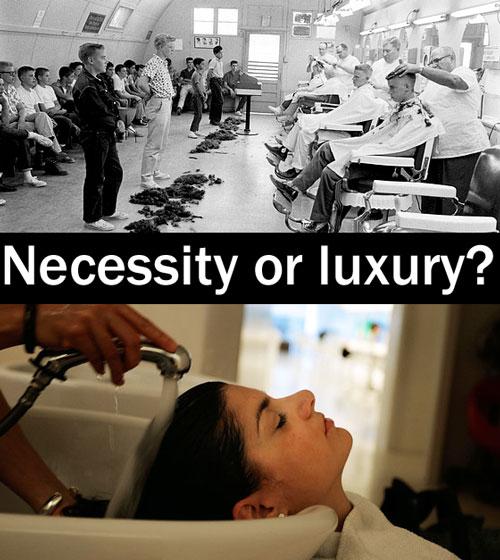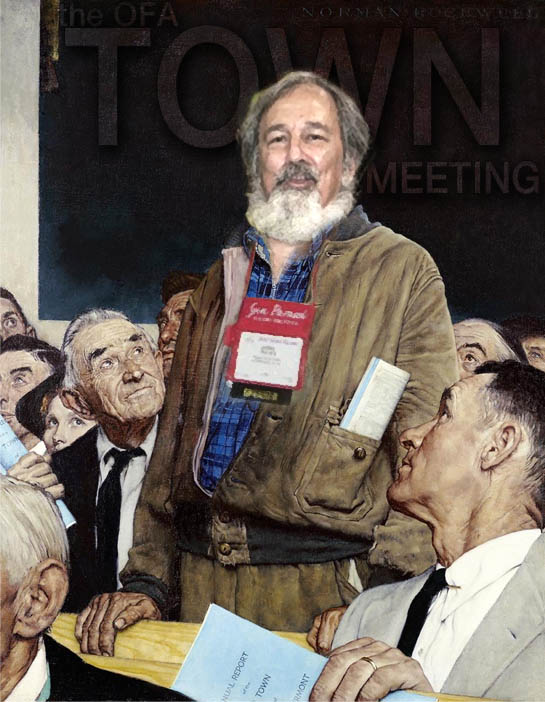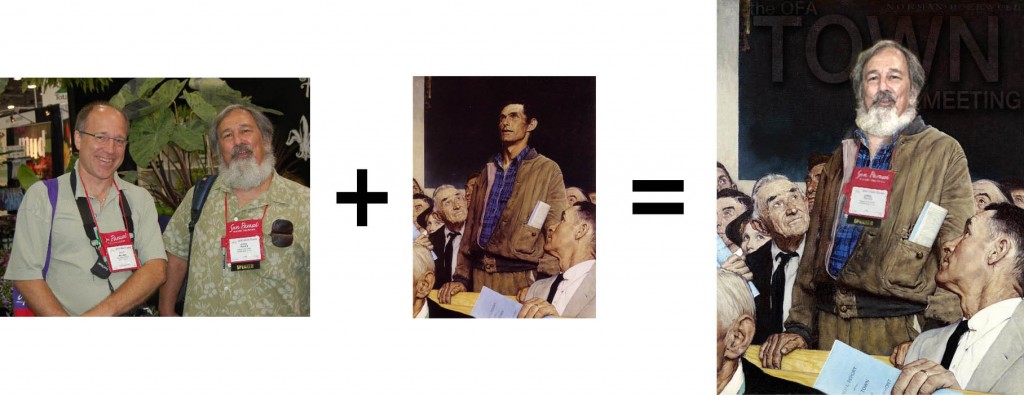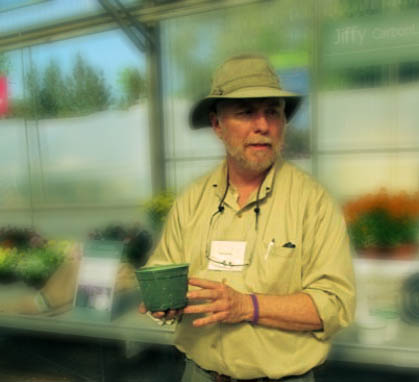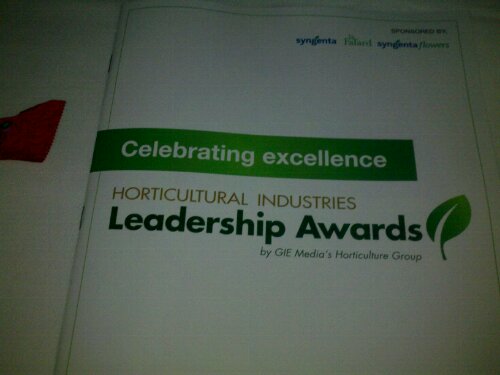Part 4 of 4 in the “OFA Town Meeting” series. Read parts one, two and three.
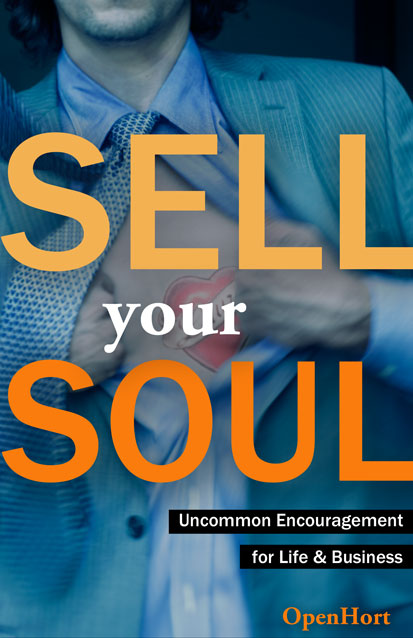
In my previous posts on the 2011 OFA Town Meeting, I shared that our industry faces some big problems. Our customers don’t love us like they used to, and our balance sheets are suffering because of it. Plants are less valuable than they were before the recession began. We have slid down the hill of consumer desire, and we’re not sure why–or how to reverse that trend. Do we continue to be an “ornamental luxury good” or do we mount a full-out effort to be a “new necessity?” (Or do we try to be a ‘necessary luxury’ or perhaps a ‘luxurious necessity?’) Worse still, we are ill-equipped as a group to address the industry-wide issues. There are fewer opportunities to meet, discuss and debate because our associations are limping along with less participation and support. Even when we do have gatherings like Town Meeting, the large majority of us just can’t be bothered to attend.
So, what are we to do?
Here’s the advice that I gave at the Town Meeting: “Things are so bad that maybe you should consider selling your soul. [Pause…awkward smattering of laughter.] What I mean is, stop selling products. That just leads to being cheaper than the next guy. Sell what you have that is unique. Rediscover the soul of your business, and sell that story.”
“Sell Your Soul” has grabbed hold of my brain these past two weeks. What started as an attempt to be clever with a turn of phrase has bloomed to much more than a single blog post. The following is my outline of thoughts that could possibly turn into a book. I don’t know if I will write this book, or if the things I am thinking are useful or correct. I share my thoughts here because it is helpful to get your opinion.
________________________________________________________________
Q: Which of the following best describes your strategy for “post-recession” survival?
- Be conservative. Don’t panic; think it through! Be slow to change. Wait as long as you can before making decisions. Hope things return to normal soon. Patience is the name of the game!
- Hustle. Strategy? Forget strategy. Move! There’s no long-term future if the short-term isn’t taken care of first. Chase every piece of business that moves. Slash prices; grab the cash. Make the deal happen today; never say “no.” You have to do whatever it takes; there’s time to clean up the mess later.
- Sell your soul. Things are so bad…maybe it’s time to sell your soul!
- Exit. You shut down the business…but you better act fast before your life savings are wiped out.
Pick the one you like best, and then turn the page!
________________________________________________________________
A: I think the correct answer is “(c) Sell your soul.”
Sound kind of desperate? Here’s why it’s your best choice if you want to thrive, not just survive, in the post “Great Recession” economy. Consider the same question, with the same answers, only phrased slightly differently:
Which of the following best describes your strategy for “post-recession” survival?
- Be conservative = Starve to death.
- Hustle = Prostitute yourself.
- Sell your soul = Be uniquely you.
- Exit = Quit.
Safety First.
As a business leader, your first goal is simply not to fail. When things all around you rapidly change, you must assess which change is fundamental, and which is temporary. You can’t afford to react to every bump in the road; you must chart a steady course through the turmoil, undistracted by the unessential.
The cost of over-reaction is steep: sudden death. But the cost of slow reactions can be equally fatal; it just takes a lot longer to run out of gas than to fly off a cliff. If your business is running out of gas—out of cash, customers, inventory, investment—then your conservative approach is a sure loser. How long can you wait to make a change?
If “safety first” is your motto, you’ll ultimately find your safe resting place. What will they carve on your tombstone?
In Chapter 1, we will see that patience and careful decision-making are indeed virtues, but that you can’t afford to wait too long before making changes to your business or your life.
Anything to make a buck.
Leaders exist to lead. You’re a leader, and that means that you have to DO SOMETHING, right? When things fall apart, it may seem foolish to sit idly by. It can be difficult to resist the urge to rush in and fix things.
But the sober leader knows that immediate, thoughtless reactions are most often the wrong reactions.
Sales are down? Slash prices. Overhead is too high? Lay-off some more employees. You have an opportunity outside of your realm of expertise? Act like you know what you’re doing. Customers don’t want to pay a premium for quality? Hold your nose and just get it done. Your customer’s customer tries to buy direct? Let’s hope nobody notices.
These are all probably the wrong decision, but the hustler can’t see the long-term implications.
Slashing prices leads to a devaluing of your product, which may hurt you for decades. Cutting staff too deeply can lead to an inability to serve your customers—and they will notice. Losing focus by taking on new opportunities that you can’t excel in will only lead to misspent effort and future confusion, inefficiencies and failures. If your quality slips, your reputation will slip even faster. And betraying business allegiances will lead you and your customers to wonder, “How in the world did we become a company so far removed from what we wanted to be?”
In Chapter 2, we will see there is no substitute for effort, but you need more than hustling to get where you want to go. Don’t move until you think it through completely. When you know the correct path, then you better hustle like your life depended on it—cause it does.
If your motto is “anything to make a buck,” then you’re basically a prostitute in a business suit. If all you do is hustle, you will inevitably compromise yourself, and the payment you receive will not be worth the prostitution.
Quit
Nobody wants to be a quitter, but it may be the wisest choice for you. In Chapter 3, we will set our egos aside and take a look at the real meaning of business and life, and they are not the same thing.
We’ll think through how to face the hard facts without emotion and how to proceed with the difficult process of dissolving a company or a division of a larger enterprise. We will also look at the risk of waiting too long to quit, and finally how to find help and support from others.
Sell your soul.
It’s time you stopped selling stuff—the products gathering dust on the shelves or the billable hours on your time-sheets—because the value you create isn’t in the stuff so much as it’s in you. It’s in your soul, that which makes you uniquely you. Your soul is your most valuable asset. It’s of infinite worth, actually!
When I say, “Sell your soul,” of course I don’t mean compromise your values. Quite the opposite.
Understand what lies at the soul of your business and your life…and stay true to it. Live it; don’t fake it. Put it out in the open; tell your story. Having a soul isn’t good enough now. You need to sell it, transparently and honestly.
Sell your soul or lose it.
The essentials of business never change: people want quality goods at fair prices with thoughtful service. These essential ingredients haven’t changed since from before the industrial revolution, but they have changed drastically in terms of degree and mixture. What comes after our “information age,” with its overwhelming amount of messages and information? We could well be already in the Age of Meaning, where much more than data and deals, people want narrative and connection. Your customers don’t want cheap stuff nearly as much as they want to do business with a company that confidently expresses their soul.
This concept is more than just a play on words, it’s a radical shift in thinking about value in the marketplace. Who you are and what you stand for—your soul—will be your most valuable asset in the new economy.
In Chapters 4 and 5, we examine how “Selling Your Soul” combines the best of both the conservative and the hustling approach. Thought and action, working in concert, is the approach you want.
In Chapter 6, we will see some examples of businesses and leaders that are successfully “selling their souls.” Chapter 7 is a roadmap to discovering your soul and how to build a culture with the right people to nurture your soul.
Chapter 8 is all about the tools of selling your soul, and why today’s social networking tools are the perfect gift to the small business with soul.
Chapter 9 warns about the need for honesty and transparency, while Chapter 10 examines why tomorrow’s consumer values soul over features or price, and how your business can compete and win even in the midst of massive generational change.
Chapter 11 asks the question, “When is it OK to compromise?”
Chapter 12 will encourage you to find a higher, greater purpose in business and in life, so that your soul is actually worth selling.
And, lastly, in Chapter 13 we will examine the “Return on Soul:” how to turn attention and awareness into profitable sales.
________________________________________________________________
Connect.
I’m not sure how to proceed from here. I’m eager to hear your thoughts! Please post a comment, or send me an e-mail if you’d rather keep it private. Thanks for reading! ~Art

